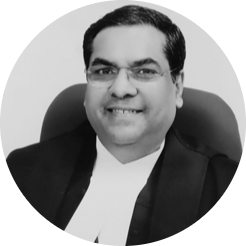Pendency of bills before the Governor of Kerala
State of Kerala v Governor for State of Kerala
The Supreme Court will hear petitions from the Kerala government against the Governor of Kerala withholding assent on pending bills. This case concerns the obligations of the Governor under Article 200, which deals with the Governor's power to assent to Bills.
Pending
Parties
Petitioners: State of Kerala through Chief Secretary, Government of Kerala; T.P. Ramakrishnan
Lawyers: C.K. Sasi, AOR; KK Venugopal, Sr. Adv; Gopalkrishnan Kurup, Advocate General.
Respondent: Governor of State of Kerala through the Secretary; Additional Chief Secretary to Governor; Union of India through Secretary to the Government of India.
Lawyers:
Case Details
Case Number: WP (Civil) No. 1264/2023
Next Hearing: November 29, 2023
Last Updated: March 25, 2025
Key Issues
Can Bills submitted to the Governor under Article 200 be kept pending without response for an indefinite period?
Case Description
On 1 November 2023, the State of Kerala filed a writ petition in the Supreme Court challenging the inaction of the Governor of Kerala, Arif Mohammad Khan, on various Bills pending before him for assent.
The petition contended that the Governor’s actions were threatening the “basic foundations of our Constitution.” Kerala stated that the Governor has kept eight Bills pending. These Bills have been passed by the State Legislature and had been presented to the governor for his assent under Article 200.
Article 200 of the Constitution states that after the passage of a Bill by a state Legislative Assembly, or in case of a bicameral legislature, both Houses of the state, the Bill ought to be presented to the Governor. He shall then have either of three options: to assent to the Bill, withhold assent from the Bill, or reserve the Bill for consideration of the President.
Article 200 also mentions that the Governor, after presentation of the Bill, must return the Bill “as soon as possible” along with a message requesting the House to reconsider specific provisions within, or the entirety of the Bill. If the Bill were to be passed again and resent to the Governor, he is obligated to not withhold it.
The state of Kerala mentioned to the Court that three of the Bills had been pending for more than two years, and another three Bills had been pending for over a year. Five of the Bills are University Laws Amendment Bills. These Bills seek to replace the Governor as the Chancellor of state universities. One of these Bills relates to the APJ Abdul Kalam Technical University, which has been pending for 23 months.
There is also the Kerala Co-operative Societies (Amendment) Bill, which seeks to ensure stronger security for deposits in the wake of the Karuvannur bank scam. The Governor had expressed concern about the lack of clarity in various provisions, including those relating to team audit and term limit. In October 2023, Governor Arif Mohammed Khan asked in a press conference who he should address questions to, if the ministers or Chief Minister were not “in a position to clarify.” In its petition, the state has argued that pendency of the Bill affronts the “basic democratic right of voting to the primary dairy cooperative societies.”
Another Bill seeks to amend the Kerala Lokayukta legislation. The Bill abolishes the appellate power of the Governor—for any Lokayukta judgement passed against the Chief Minister, appeal would lie with the Legislative Assembly and not the Governor. For judgements against ministers, the Chief Minister would be the appellate authority, and for those against MLAs, it would be the Speaker. It also amends Section 14 of the legislation which directed the removal of public servants indicted by the Lokayukta. Under the amendment, the Lokayukta’s power has been reduced to a recommendatory one. Opposition parties had expressed discontent against the legislative changes, claiming that they make the Lokayukta a redundant body.
Finally, the Public Health Bill, 2021 had also remained pending before the Governor. Various traditional medical practitioners had contended before the Governor that the Bill interferes with medical practices, treatment systems and their qualifications.
The state government’s petition argued that since the legislature has already deliberated on the “public interest” involved in the Bills, the Governor should typically assent or return the Bill within a few weeks at most. The government also argued that the indefinite pendency of the Bills by the Governor violated Article 14 since the act was manifestly arbitrary. It also contended that the pendency violated Article 21 since the Bills sought to be enacted are “welfare legislations.”
On 20 November 2023, Senior Advocate K.K. Venugopal, representing the government, submitted that the Governor was a part of the legislature under Article 168. He stated that the Governor had promulgated three ordinances which had been converted into Bills and passed by the legislature. He also said that eight Bills had been pending consideration for assent, ranging from a period of eight to 21 months. The Court issued notice to the Additional Chief Secretary and the Union of India. It also requested the Attorney General or Solicitor General to assist the Court.
On 24 November 2023, the Court directed the Kerala Governor to refer to the judgement of the Court in State of Punjab v Principal Secretary to the Governor of Punjab. In that case, on November 23, the Court had observed that Governors ought to act within the prescriptions of the state legislature and cannot “virtually veto” Bills that have been presented for assent. Senior Advocate Venugopal submitted that the judgement from the Punjab case will “entirely cover” the issue faced by the Kerala government.
The issues in this case are also similar to the ones raised in pending matters in State of Tamil Nadu v Governor of Tamil Nadu, and State of Telangana v Secretary to her Excellency, the Governor for State of Telangana, both arising from writ petitions filed this year.
